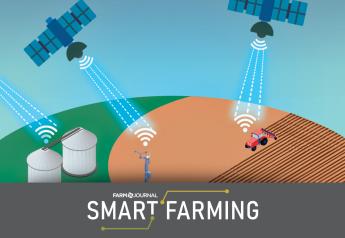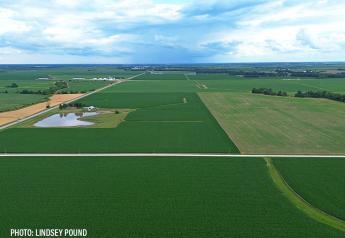Advanced Biological Marketing Receives National Science Foundation Grant
Advanced Biological Marketing (ABM) provides solutions for commercial agriculture using biological seed treatments that increase a crop’s potential and yield. The company has been awarded a National Science Foundation (NSF) Small Business Innovation Research (SBIR) grant to conduct research and development work aimed at developing formulations of a new class of biorational chemicals that are based on chemical communicants from plant symbiotic fungi.
These new products are expected to provide season-long improvements in plant productivity, including greater crop yields, enhanced root growth, and resistance to a variety of stresses including drought. The products induce plants to use sunlight more efficiently and thereby provide greater plant biomass. This project builds on the discovery that selected biorational fungal metabolites increase plant productivity and stress resistance even when applied at very low concentrations and provide season-long effects on plants long after the application. The new products will augment ABM’s products based on advanced microbial agents that colonize plant roots. They will permit new applications and add versatility to the product line.
“The National Science Foundation supports small businesses with the most innovative, cutting-edge ideas that have the potential to become great commercial successes and make huge societal impacts,” says Barry Johnson, Director of the NSF’s Division of Industrial Innovation and Partnerships. “We hope that this seed funding will spark solutions to some of the most important challenges of our time across all areas of science and technology.”
“The biorational and microbial products sold and being developed by ABM provide unique opportunities to improve plant performance, says Gary Harman, the grant’s Principal Investigator. “The enhanced plants produced by these products function in many respects like totally new varieties even though they contain the same genetics as plants without the treatments. However, they can be deployed now and without the time lag and expense required for development of genetically altered plants. There is a strong likelihood that combining advanced plant genetics with ABM’s biological and biorational products will provide even more improvements.”
Once a small business is awarded a Phase I SBIR/STTR grant it becomes eligible to apply for a Phase II grant. Small businesses with Phase II grants are eligible to receive up to $500,000 in additional matching funds with qualifying third-party investment or sales.
ABM headquarters are in Van Wert, Ohio. For more information, visit www.abm1st.com.







